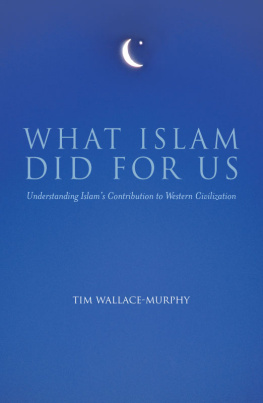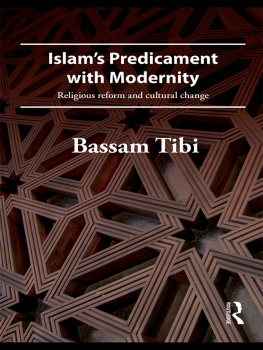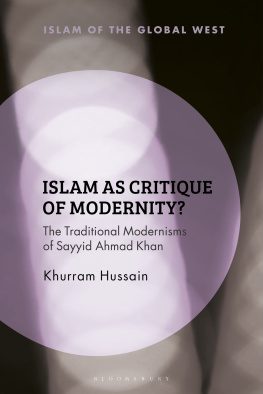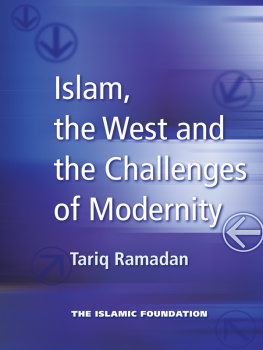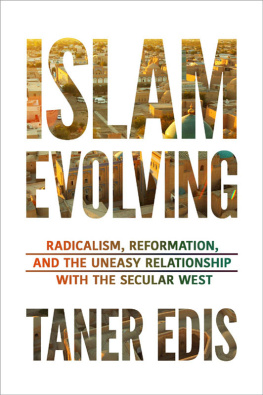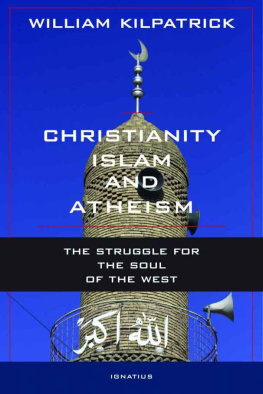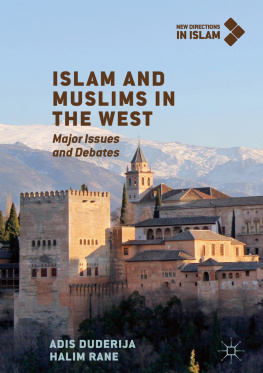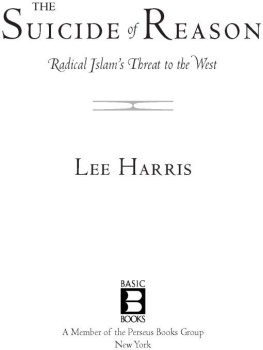About the Contributors
mer aha is professor of public policy and politics at Fitah University in Istanbul, Turkey. He is the author of numerous books on Islamic politics and society.
Sandra Halperin is a senior lecturer in international relations at the University of Sussex in the United Kingdom. Her principal research interests focus on the causes and conditions of war and peace: macro-political economy; comparative political development; and Middle East politics. Her publications include In the Mirror of the Third World: Capitalist Development in Modern Europe (Cornell University Press, 1997); Global Civil Society and Its Limits, co-edited with Gordon Laxer (Palgrave/Macmillan, 2003); War and Social Change in Modern Europe: The Great Transformation Revisited (Cambridge University Press, forthcoming); and articles on nationalism, ethnic conflict, state-building, and Islam.
Wadood Hamad is an activist and writer living in Vancouver, Canada.
Lauren Langman is professor of sociology at Loyola University of Chicago. He is current chair of the Alienation Research section of the International Sociological Association and was former chair of the Marxist section of the American Sociological Association. He works in the Frankfurt School tradition and has written on identity, globalization, nationalism, and, more recently, on carnival-spectacles.
Douglas Morris is completing a Ph.D. in sociology at Loyola University of Chicago. He has an M.A. in social research from West Virginia University. He and Lauren Langman have co-written a number of papers on Islam and modernity, and on social movements and the Internet.
Haroun Er-Rashid is professor in the School of Environmental Science and Management at Independent University, Bangladesh. He has worked for the Civil Service of Pakistan and after 1971, for the Government of Bangladesh. He has also been with the World Bank and the Food and Agriculture Organization of the United Nations for more than a decade. His publications include many articles on environmental, geographical, and political issues and three books, the latest of which is Clash of Cultures: Lessons from Bosnia.
Nissim Rejwan is a research fellow at the Harry S. Truman Institute for the Advancement of Peace at Hebrew University, Jerusalem. His books include Arabs Face the Modern World (University Press of Florida, 1998), Israels Place in the Middle East (University Press of Florida, 1998), The Many Faces of Islam (University Press of Florida, 2000), and Baghdad Exit:A Memoir (University of Texas Press, forthcoming).
Michael J.Thompson teaches political science at Hunter College, City University of New York and is also the editor of Logos:A Journal of Modern Society & Culture.
Farzin Vahdat teaches social theory and social studies at Harvard University. He received his Ph.D. in sociology from Brandeis University in 1998. His intellectual interests include the theoretical approaches to the development of modernity in the West and the Middle East, critical theory and Islam, and modernity. His articles have appeared in journals such as the International Journal of Middle East Studies, Critique, and the Scandinavian Journal of Middle Eastern Studies. His book, God and Juggernaut: Irans Intellectual Encounter with Modernity (Syracuse University Press, 2002), explores the development of modern ideas and institutions in Iran by drawing on critical theorists assessments of modernity, particularly those articulated by Kant, Hegel, Frankfurt School theorists, and Habermas.
1
Muslims and the West: A Paradigm for Polarization
Haroun Er-Rashid
Polarization between the West and Muslims greatly accelerated after September 11, 2001, and now this bipolarity threatens to become a universal paradigm. The predictions of Daniel Pipes, Bernard Lewis, and Samuel Huntington seem to be unfolding before our very eyes.1 Suddenly, all Muslims have become suspect in the West and Islam itself has been openly labeled evil by mainstream and fundamentalist evangelists and politicians. As events unfold in many different countries it is clear that America, if not all in the West, is waging a struggle to control, and whenever possible, destroy an enemy that appears in various forms as an ideology, a number of disparate cultures, a religion, and even a whole civilization. This has bewildered Muslims the world over, not least those who have identified themselves with the democratic aspirations of the West.
- Say: O you who deny the truth!
- I do not worship that which you worship,
- and neither do you worship that which I worship.
- And I will not worship that which you have [ever] worshipped
- And neither will you [ever] worship that which I worship.
- Unto you, your moral law, and unto me, mine!
Surah Al-Kafirun
Al Quran
Muslims take this surah to be the ultimate exhortation for toleration. It says very clearly that in matters of religion, Muslims will tolerate other religions provided they are given the same toleration in return. It says, again very clearly, that non-Muslims are not expected to convert or to curb their religious practices. Surah Al-Kafirun and others of similar vein form the kernel of injunctions, which guide the great majority of Muslims in their relationships with non-Muslims. Fortunately, the great majority of non-Muslims also believe in toleration. Otherwise, over the past fourteen centuries there would have been endless wars, forced conversions, massacres, expulsions, and immense misery. That in the main this has not been so is ample proof of a fair degree of toleration on both sides.
Nothing in human affairs is angelic or perfect. There has been discrimination, periodic persecutions, unjust legal measures, and occasional wars and expulsions by both sides. The majority of the different Muslim and non-Muslim peoples have absorbed cultural shocks, adjusted to new situations, and reached an accommodation with new regimes and new neighbors. Throughout history this has been the live and let live principle, which has safely guided societies out of intolerable situations. It is the misfortune of existing Muslim societies to be faced with a time of trials and tribulations. Over the past half century, there have been many small conflicts in Muslim countries, precisely because the Muslims in those areas lived or continue to live in intolerable situations. According to Samuel Huntington, the borders are bloody but that is because Muslims have tried to redress situations imposed upon them.2
One often reads and hears through the media that the events of 9/11 have profoundly changed the world. This is not correct. What it did was enable the radical elements in the West to push through their agenda for world hegemony. In retrospect it seems as if they were waiting for some event to happen and strengthen their hand. Almost like the seizure of Kuwait by Saddam Hussein, a decade earlier. Allusions to profound change are a red herring that serves to misguide the western public who know so little of the non-West. Todays events that anger and bewilder the westerner have their roots in colonialism and in some instances go back 500 years. The seeds of this whirlwind are to be found in the fifteenth-century European voyages of discovery and colonialism. The first wave was of massive plunder and merciless exploitation of Mexico and Peru, with a smaller, but ultimately more significant, series of raids and expropriations in Asia.3 Asian trade increased, often under duress, and as Asian empires and kingdoms declined, the appetite for overseas possessions increased. From the very beginning, the expansion of European power was primarily for economic exploitation and only secondarily for the expansion of legitimate trade, the settlement of colonists, and the spread of Christianity. This expansion was possible mainly as a result of superior technology and management skills. After two centuries of gradually building up their prowess in these two areas, Europeans began the second phase of their power-play by conquering Bengal and Java.4 These eighteenth-century colonial gains laid the foundation for an almost complete conquest of the world in the next century. What is being witnessed today are the reverberations of that reckless enterprise.


